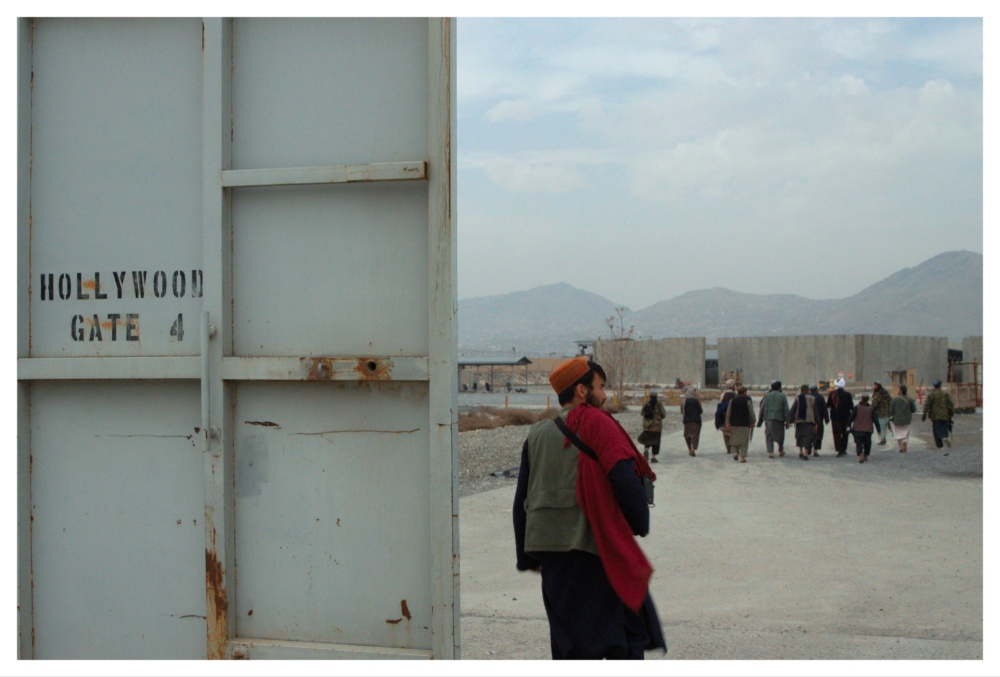Exploring the impact of “Hollywoodgate”: A documentary on Afghanistan’s turbulent transition
The world of cinema and television has always been a powerful medium to reflect and critique societal changes. One such poignant reflection is Ibrahim Nash’at’s documentary, “Hollywoodgate,” which delves into the aftermath of the U.S. military withdrawal from Afghanistan. This article explores the significance of this documentary, its journey through film festivals, and its upcoming screenings in the Middle East and North Africa (MENA) region.
A gripping narrative of Afghanistan’s transformation
“Hollywoodgate” is not just a documentary; it is a window into the chaotic and tumultuous period following the U.S. withdrawal from Afghanistan in August 2021. The film captures the takeover of a former U.S. military base in Kabul and the subsequent transformation of the Taliban from a fundamentalist militia into a military regime. The documentary premiered at the Venice Film Festival and recently made its Middle Eastern debut at the Amman International Film Festival.
For those interested in a sneak peek, you can watch the trailer here: Hollywoodgate Trailer.
The significance of the MENA region screenings
Front Row Filmed Entertainment, a Dubai-based distributor, has acquired the distribution rights for “Hollywoodgate” in the MENA region. The documentary is set to have special screenings across alternative cinema circuits, potentially on August 30, 2024, marking the three-year anniversary of the U.S. withdrawal from Afghanistan. This tentative plan underscores the film’s relevance and the ongoing interest in Afghanistan’s evolving political landscape.
Gianluca Chakra, the chief of Front Row, emphasized the importance of bringing socially conscious films to the forefront. He stated, “It is our responsibility to bring socially conscious films to the forefront, and ‘Hollywoodgate’ provides an essential perspective on the complex realities faced by the Afghan people. This film aligns with our mission to support and distribute thought-provoking and impactful cinema across the MENA region.”
An insider’s perspective: Ibrahim Nash’at’s journey
Ibrahim Nash’at, an Egyptian journalist, gained unprecedented access to the Taliban’s operations within the former U.S. military base. The documentary follows Mawlawi Mansour, the new head of Afghanistan’s air force, as he orders his soldiers to inventory and repair the abandoned military equipment. Nash’at’s unique position allowed him to capture the raw and unfiltered transformation of the Taliban, providing viewers with an eye-opening depiction of their rise to power.
In an interview with Variety’s Christopher Vourlias, Nash’at expressed his hopes for the documentary: “My hope is that for the first time, ‘Hollywoodgate’ can expose the Taliban from the inside out and help bring attention back to the plight of the Afghan people.”
The broader impact of “Hollywoodgate”
“Hollywoodgate” is more than just a documentary; it is a crucial piece of storytelling that sheds light on the ongoing struggles within Afghanistan. The film’s release in the MENA region is a testament to the power of cinema in fostering understanding and empathy for complex global issues. By providing an insider’s perspective on the Taliban’s operations, “Hollywoodgate” challenges viewers to reconsider their perceptions and engage with the realities faced by the Afghan people.
As the world continues to grapple with the consequences of the U.S. withdrawal from Afghanistan, “Hollywoodgate” serves as a timely reminder of the human stories behind the headlines. The documentary’s upcoming screenings in the MENA region offer an opportunity for audiences to engage with these stories and reflect on the broader implications of Afghanistan’s turbulent transition.
“Hollywoodgate” is a powerful documentary that captures a pivotal moment in Afghanistan’s history. Its journey through film festivals and upcoming screenings in the MENA region highlight the importance of socially conscious cinema in fostering understanding and empathy for global issues. As viewers, we are invited to engage with the documentary’s narrative and reflect on the complex realities faced by the Afghan people.

 Italian
Italian







